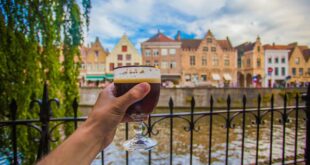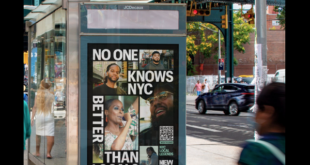[ad_1]
New research from experience design agency 383, finds that the dreaming and planning stages of the holiday booking process is getting longer. The UK is a nation of dreamers, fantasising about their next getaway at all hours of the day.
By understanding this dreaming and planning stage – as well as customer behaviours and motivators – online travel agents (OTAs) can increase conversions from the dreaming to booking stage.
The research identified a number of customer behaviours around travel planning that can be utilised by OTAs:
- 42% of UK adults search for holidays they can’t afford to book
- 41% are searching for holidays during their working day, including commute time, with 25% searching while at work. This behaviour is more common among 25-34 year olds (40%)
- Dreaming about holidays is weather dependent. Nearly half of UK adults (48%) dream of holidays when its winter
- 21% of 18-24 year olds (Gen X) dream of holidays on pay day, compared to 16% of 25-44 year olds
- Nearly a quarter (23%) of Gen X dream of holidays last thing at night, compared to just 17% of 25-44 year olds
- Women are more emotionally driven holiday dreamers than men. 37% of women dream of escaping on holiday after a bad day, compared to 24% of men
On average, the UK travel consumer spends 6 hours total searching for a holiday. Across the nation, this equates to a total of 336 million hours being spent on travel dreaming, planning and booking.
And how are customers researching and dreaming about holidays? 32% of 18-44 year olds use Instagram to research holidays, rather than any other major world travel site (such as Lonely Planet, Which?Travel, Travel Zoo, Conde Nast, YouTrip). Instagram is more influential for particular demographics of UK adults, including women (30%), Gen X (44%), and millennials (36%).
24% of 25-44 year olds identified Facebook as the most influential source of holiday inspiration, and 15% cited travel bloggers as most influential.
383’s research also identified that consumers favour a short window between booking and travelling. 29% of UK adults plan holidays 2-3 months before travelling, with 4-6 months in close second (22%). Younger generations are more impulsive, with 42% of under-35s booking a holiday just 2-4 weeks before travelling.
Founder of 383, Sukhi Dehal said: “We hope our research can provide OTAs with valuable insight into their customers’ mindsets and behaviours. Dreaming and planning is a vital part of the customer journey, clearly distinct from the booking stage. By tapping into these dreaming behaviours, OTAs can create a customer-first experience that increases conversions.
“Instagram and content are huge factors in the dreaming and planning stage – our research show some customers are using social media and celebrities as their main resource. OTAs need to make the most of this information. By creating digital experiences and content that play into this dreaming culture, travel brands can secure their place front and centre of customers’ minds.
“Competing with the travel booking giants in today’s landscape is a difficult challenge for OTAs, but those that capture consumers earlier on in the funnel – armed with a deeper understanding of the experience, efficiency and inspiration customers truly want – will be in a better position to hold on to consumers right through from the dreaming stage to booking.”
383’s interest in the dreaming and planning stages of travel stems from research by Google, published in 2011. Google identified five stages of a customer’s travel journey: dreaming, planning, booking, experiencing, and sharing. It is this ‘sharing’ of holiday photos and content online which in turn inspires the dreamers and planners.
[ad_2]You can read more of the news on source
 Travelsmart
Travelsmart



